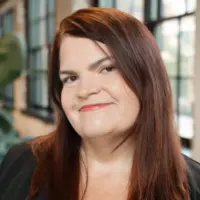They don't answer the phone and the only people who work there are those who can't get a job anywhere else. They knew that I was suffering from clonazepam withdrawal and did nothing! Don't trust them.
About CenterPointe – Outpatient
The CenterPointe Outpatient Clinic is located in Lincoln, Nebraska. This is a care center that provides support to adults aged 19 and older who are struggling with their mental health or have co occurring substance abuse struggles at play.
Along with their general outpatient program, they have a more supportive adult intensive outpatient program that provides targeted and wraparound care to help you with the challenges you’re facing.
In addition to their adult program, there’s also a dedicated youth outpatient program, but those services are more geared toward mental health struggles. However, if you have a teen who’s displaying harmful or at risk behaviors that could lead to substance abuse in the future, their outpatient therapy and assessment services can be a great support to you.
The services here are covered through most major insurance policies, including Medicaid and Medicare. They also accept a variety of state and local health funds, including coverage through the state corrections or juvenile justice funds.
Wraparound, Person Focused Care in Lincoln
As an outpatient clinic, this organization does a really good job providing wraparound support that emphasizes evidence based therapy and holistic recovery approaches. Some of the supports you’ll find include skill building activities that allow you to recognize triggers and identify how to manage stressors when they arise. You’ll also be supported with crisis support services and integrated treatment through medication management if necessary.
Along with their therapeutic treatment modalities and purposeful counseling, they also offer psychiatric services to diagnose underlying mental health or behavioral health challenges that might be at play.
Access to Transitional Rehabilitation Programming
If you require more supportive care, there is an adjacent facility where you can get connected to transitional rehabilitation programs that provide residential support. These residential homes are located on the medical campus, making it easier for you to continue receiving care.
Latest Reviews
Rehab Score
Other Forms of Payment
Medicaid is a state based program that helps lower-income individuals and families pay for healthcare. Medicaid covers addiction treatment so those enrolled can use their coverage to pay for rehab. When a program accepts Medicaid the client often pays very little or nothing out of their own pocket.
Private insurance refers to any kind of healthcare coverage that isn't from the state or federal government. This includes individual and family plans offered by an employer or purchased from the Insurance Marketplace. Every plan will have different requirements and out of pocket costs so be sure to get the full details before you start treatment.
Self-pay involves paying for treatment out of your own pocket. You can use savings or credit, get a personal loan, or receive help from family and friends to fund your treatment. If you don't have insurance or your insurance plan doesn't cover a specific program, self-pay can help ensure you still get the care you need.
Financial aid can take many forms. Centers may have grants or scholarships available to clients who meet eligibility requirements. Programs that receive SAMHSA grants may have financial aid available for those who need treatment as well. Grants and scholarships can help you pai for treatment without having to repay.
Sliding scale payments are based on a client's income and family size. The goal is to make treatment affordable to everyone. By taking these factors into account, addiction recovery care providers help ensure that your treatment does not become a financial burden to you or your family, eliminating one barrier to care.
Medicare is a federal program that provides health insurance for those 65 and older. It also serves people under 65 with chronic and disabling health challenges. To use Medicare for addiction treatment you need to find a program that accepts Medicare and is in network with your plan. Out of pocket costs and preauthorization requirements vary, so always check with your provider.
Addiction Treatments
Levels of Care
Outpatient Programs (OP) are for those seeking mental rehab or drug rehab, but who also stay at home every night. The main difference between outpatient treatment (OP) and intensive outpatient treatment (IOP) lies in the amount of hours the patient spends at the facility. Most of the time an outpatient program is designed for someone who has completed an inpatient stay and is looking to continue their growth in recovery. Outpatient is not meant to be the starting point, it is commonly referred to as aftercare.
Drug and alcohol addiction often takes a heavy toll on one's body. Over time, a physical dependence can develop, meaning the body physiologically needs the substance to function. Detox is the process of removing drugs and/or alcohol from the body, a process that can be lethal if mismanaged. Medical detox is done by licensed medical professionals who monitor vital signs and keep you safe, healthy, and as comfortable as possible as you go through detox and withdrawal.
Treatments
The goal of treatment for alcoholism is abstinence. Those with poor social support, poor motivation, or psychiatric disorders tend to relapse within a few years of treatment. For these people, success is measured by longer periods of abstinence, reduced use of alcohol, better health, and improved social functioning. Recovery and Maintenance are usually based on 12 step programs and AA meetings.
During drug rehab in Nebraska, you'll participate in therapies that address the many issues that contribute to addiction. Treatment includes physical, mental, emotional, and relational aspects. These methods provide the tools you need to achieve long-term recovery.
Many of those suffering from addiction also suffer from mental or emotional illnesses like schizophrenia, bipolar disorder, depression, or anxiety disorders. Rehab and other substance abuse facilities treating those with a dual diagnosis or co-occurring disorder administer psychiatric treatment to address the person's mental health issue in addition to drug and alcohol rehabilitation.
A combined mental health and substance abuse rehab has the staff and resources available to handle individuals with both mental health and substance abuse issues. It can be challenging to determine where a specific symptom stems from (a mental health issue or an issue related to substance abuse), so mental health and substance abuse professionals are helpful in detangling symptoms and keeping treatment on track.
Opioid rehabs specialize in supporting those recovering from opioid addiction. They treat those suffering from addiction to illegal opioids like heroin, as well as prescription drugs like oxycodone. These centers typically combine both physical as well as mental and emotional support to help stop addiction. Physical support often includes medical detox and subsequent medical support (including medication), and mental support includes in-depth therapy to address the underlying causes of addiction.
Programs
Adult rehab programs include therapies tailored to each client's specific needs, goals, and recovery progress. They are tailored to the specific challenges adult clients may face, including family and work pressures and commitments. From inpatient and residential treatment to various levels of outpatient services, there are many options available. Some facilities also help adults work through co-occurring conditions, like anxiety, that can accompany addiction.
Young adulthood can be an exciting, yet difficult, time of transition. Individuals in their late teens to mid-20s face unique stressors related to school, jobs, families, and social circles, which can lead to a rise in substance use. Rehab centers with dedicated young adult programs will include activities and amenities that cater to this age group, with an emphasis on specialized counseling, peer socialization, and ongoing aftercare.
Clinical Services
Group therapy is any therapeutic work that happens in a group (not one-on-one). There are a number of different group therapy modalities, including support groups, experiential therapy, psycho-education, and more. Group therapy involves treatment as well as processing interaction between group members.
Staff

Topher Hansen, JD
President/CEO

Tami Lewis-Ahrendt
Executive VP COO

Ryan Paul Carruthers, PhD, LADC, LMHP, CPSS
VP Chief Clinical Officer

Amy Borchers, MA, LIMHP LADC
Senior Director of Outpatient

Megan Moslander
Director of Development

Deb Taylor
Chairman, BOD

Joel Clements
Vice Chairman, BOD
Contact Information
2202 S 11th St
Lincoln, NE 68502